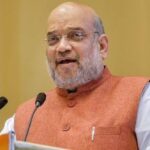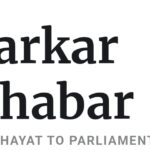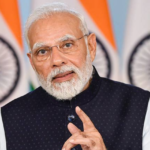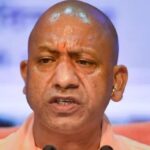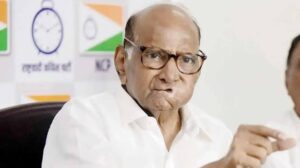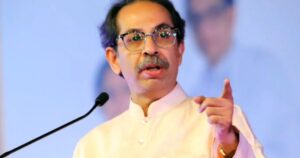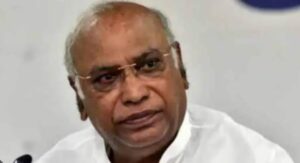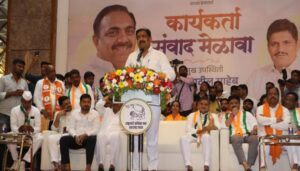
Maharashtra Elections 2024: Rebel Candidates and New Alliances Could Shape Outcome
Mumbai, 8th November 2024: Maharashtra’s 9.7 crore voters will cast their ballots on November 20 for the 288-seat state assembly. Six main parties are contesting, with four of them — Shiv Sena, Shiv Sena Uddhav Balasaheb Thackeray, Nationalist Congress Party (NCP), and Nationalist Congress Party Sharadchandra Pawar — claiming to be the original. Shiv Sena and NCP have allied with BJP, while Shiv Sena UBT and NCPSP are in alliance with Congress.
Until recently, the Maharashtra assembly elections seemed to favour the Maha Vikas Aghadi (MVA), following its strong performance in the 2019 Lok Sabha elections. However, the BJP’s win in Haryana and delayed seat-sharing talks have sparked renewed optimism within the Mahayuti alliance for a potential comeback in Maharashtra. In the 2019 assembly elections, Shiv Sena and BJP battled against the Congress-NCP alliance. While the two parties initially formed the government, Shiv Sena later broke away, joining Congress-NCP to form a new government. In 2022, Eknath Shinde split from Shiv Sena and partnered with the BJP, while NCP leader Ajit Pawar also defected and aligned with the BJP.
Aside from Congress and BJP, party alliances are fluid, with leaders frequently changing sides to secure power. State Congress chief Nana Patole, for example, shifted from Congress to BJP and then returned to Congress. Similarly, opposition leader Vijay Wadettiwar was once with Shiv Sena before joining Congress. Such defections mean that if any party falls short of numbers, these turncoats may play a pivotal role.
After the Lok Sabha defeat, Mahayuti acknowledged the significance of inflation as an issue. In response, the Mahayuti government introduced a financial aid scheme for women, providing ₹1,500 per month to women earning ₹2.5 lakh or less annually, particularly targeting those in the 21-65 age group. This move is aimed at narrowing the vote gap, as MVA secured 43.71% of the votes in the Lok Sabha elections, while Mahayuti garnered 43.55%. With approximately two crore beneficiaries under the Ladki Bahin scheme, Mahayuti is hopeful that even half of them supporting the BJP-led alliance will help it regain power.
However, the Mahayuti government, especially the BJP, has been under attack from Maratha leader Manoj Jarange Patil, who criticized Deputy CM Devendra Fadnavis for not including Marathas in the OBC quota. Marathas dominate the Marathwada region, and Patil’s mobilization of the community contributed to Mahayuti’s poor performance in the region during the Lok Sabha elections. In response, Mahayuti has focused on reaching out to other communities, including tribals, OBCs, and smaller groups, by forming specialized corporations for communities like Agris, Vani-Vani, Lohar, Shimpi, Gavali, and Nath Panth.
Rebel and independent candidates are expected to play a crucial role in this election, potentially leading to a hung assembly. The BJP has the highest number of rebels, with 43 candidates contesting in their seats and those of their allies. Shiv Sena has 10 rebels, and NCP has 14. In the MVA alliance, Congress has 32 rebels, Shiv Sena UBT has 16, and NCPSP has 17. The largest number of MVA rebels are in the Vidarbha region, which holds 62 seats and is a key battleground. In 2014, BJP’s success in Vidarbha, where it won 44 of the 62 seats, played a significant role in its rise to power. However, the BJP’s performance has waned in the region, and 2019, it only won 29 seats. Vidarbha’s influence remains critical for both BJP and Congress in determining the next government.
The election has also become a contest of freebies. With political ideologies taking a backseat and candidates frequently switching parties, each alliance is offering various promises to win over voters. Mahayuti is offering ₹1,500 under the Ladki Bahin scheme, while MVA has promised ₹2,000, following the example set by Karnataka. Chief Minister Eknath Shinde has raised the stakes, pledging ₹2,100, along with farm loan waivers, increased pensions for senior citizens, and a 30% reduction in power bills. MVA has upped the ante, offering ₹3,000 per month to women, free bus travel for women, farm loan waivers up to ₹3 lahks, ₹25 lahks in health insurance for families, and ₹4,000 monthly for educated unemployed youth.
Nearly 50% of Maharashtra’s population resides in rural areas, many of which are prone to unpredictable weather events, such as unseasonal rains and hailstorms that damage crops. The BJP-led government faced backlash from onion farmers during the Lok Sabha elections after the Centre imposed restrictions on onion exports. The export ban was lifted just before the polls, but it still negatively impacted Mahayuti’s performance in regions like Marathwada and Vidarbha. To appease farmers, Mahayuti is promising a farm loan waiver.
Another major issue for candidates is job creation. Many are promising to establish a Maharashtra Industrial Development Corporation (MIDC) in their constituencies to attract companies. The migration of state projects to Gujarat has sparked anger among Maharashtra’s youth, who are struggling with unemployment.


